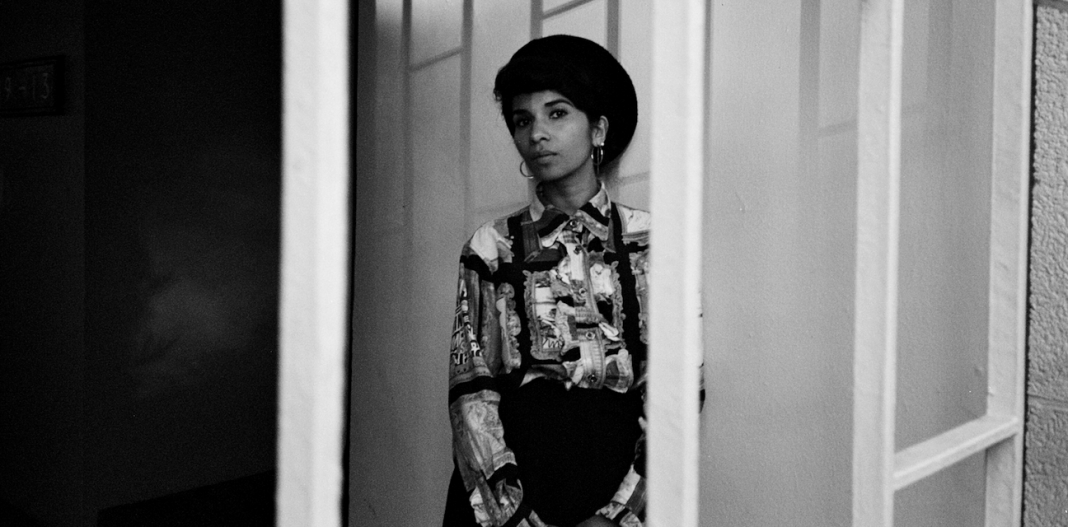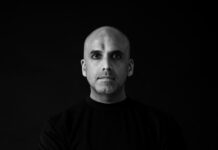Photo: Shahir Iqbal (Nabihah Iqbal)
Perhaps it doesn’t come as a surprise that Nabihah Iqbal would open her contribution for our Groove podcast with an acid-tinged remix of The Cure’s „Lullaby“ from their 1989 album Disintegration and smoothly blend it into a dream house rendition of Chaka Khan’s „Ain’t Nobody“ – after all, she herself likes to navigate between the worlds of 80s-inspired pop music and the dance floor. However there’s more to Iqbal, who released her Ninja Tune debut LP Weighing of the Heart in late 2017. A studied ethnomusicologist, she channels her impressive musical knowledge in a regular NTS show. And while her Groove mix aims more or less straight for the dancefloor, it still shows her as the multi-faceted artist she is.
The title of your recent album Weighing of the Heart refers to the ancient Egypt goddess Ma’at – herself an allegory of concepts linked to truth, harmony, and ethics – whose feather is being weighed against one’s heart in the afterlife. How does that tie in with the themes you’re exploring on the LP and the musical concept behind it?
The album explores ideas about life, death, truth, and just different things that I think about a lot – questions like „Why do people want to live?“ and „Does anybody actually communicate their true selves to the outside world?“ It’s mostly quite depressing stuff to be fair, ha! But those are the things that I care enough about to write music for. I chose the title and the imagery of The Weighing of the Heart because I’m really interested in the Ancient Egyptian belief system and a lot of the ideas embodied in the concept of the Weighing of the Heart ceremony reflect ideas that I was exploring in my music.
While you’ve previously released mostly electronic music, the album seems to stylistically take all lot of its cues from early-80s new wave and shoegaze music. Which role did these genres play in your life?
I was listening to a lot of that type of music growing up as a teenager, and I guess the music you listen to during those „formative years“ sticks with you forever. I didn’t think too hard about what I wanted the music to sound like when I was writing thie album, and it naturally just turned out this way. It took me by surprise but it totally makes sense. I really love guitar music from the 80s and the way in which artists during that era were experimenting with mixing the instruments‘ sounds with an electronic palette. The guitar sounds I use on the album are also heavily processed and they are mixed up with different synth sounds and this combination seems to remind people a lot of the 80s.
You’ve studied history and ethnomusicology and your regular NTS shows follow an ethnomusicological approach. How do you program those shows?
It takes a lot of time to prepare each one of my radio shows as I have to do a lot of research into the music – I always like to share interesting information about the music, where it comes from, who plays it, what the instruments are made of, etc., etc. And so of course, the research and preparation is key. A lot of my shows are based on themes such as „Muslim Jazz“, „The Function of Music“, „Contemporary South African music“… Things like that.
How does your approach differ from that when recording a DJ mix and what was your idea behind your contribution to our Groove podcast?
When I DJ my main aim is obviously to make people dance and enjoy the music in a very physical as well as mental way, and so I’ll pick the music accordingly. I wouldn’t be able to play the esoteric field recordings that I feature on my NTS show… I do like to play all different kinds of music – I’ll never play a whole DJ set of only one genre. That gets boring. The only rule for me is to play music that is good for dancing to!
In early February, you tweeted a picture of the recording contract for artists participating in Damon Albarn’s Africa Express project in South Africa that asked artists to sign off all rights for a symbolic £1. Has the organisation responded to your criticism and the demand to amend the contract for all artists involved?
They have received my requested amendments but I’m still waiting to hear back from them to see if they’ll change the contract…
Similarly, the recent hype about Fourth World music and reissues from the so called Third World countries is still centered in the West, with barely any of the capital being redirected to the countries where this music originated. Speaking as an ethnomusicologist as well as a musician, how do you perceive the re-emerging interest in both transcultural and music that is labelled and sold as „exotic“?
It’s a difficult situation. Obviously it’s amazing to be able to listen to different types of music from all around the world, for people to be able to travel to different places and collaborate with other musicians… But there is a certain responsibility to act fairly that falls on people from the West who want to commodify music, culture, art from other parts of the world. However, it seems that this responsibility is more of a choice than an obligation because of various factors such as power dynamics, etc. Acting on the responsibility to be fair and professional requires a certain level of self-awareness and this comes through education and listening to people, and not getting lost in greed, luxury and „otherness“. The whole notions of „the West and the Rest“ is nothing new… orientalism is still rife in our society.
Last but not least: Where can we see you behind the decks and/or performing live in the near future, and what are your plans as a producer?
I’ve got quite a few live shows and DJ sets coming up in the UK and across Europe. I’ll be performing live at Vogelball in Hamburg on 4 Aug, and I’m DJing at Trauma Bar in Berlin on 9 June. I’m working on new music at the moment which I’m really excited about… It’s something a bit different!
Stream: Nabihah Iqbal – Groove Podcast 153





